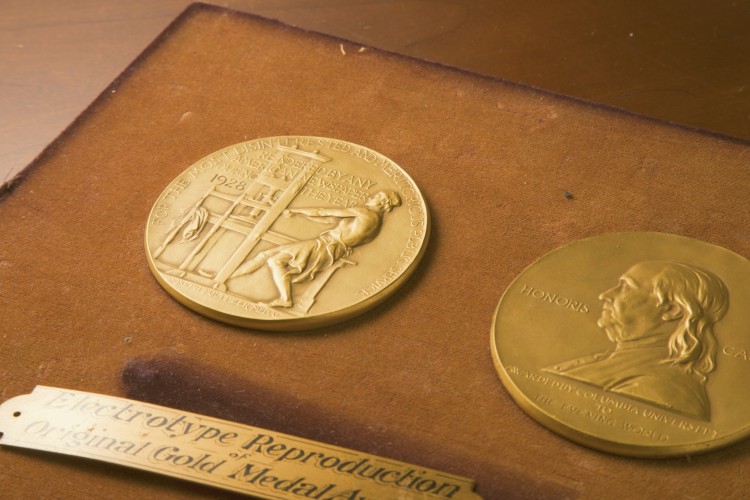the health
transformation
knowledge portal
Joaquim Cardoso MSc
Founder and Chief Researcher, Editor & Strategist
March 15, 2024
What is the message?
This article discusses the integration of AI in journalism as evidenced by five of this year’s Pulitzer finalists using AI-powered processes in their submissions.
It explores the Pulitzer and Polk awards’ approaches to entrants employing generative AI and the broader implications for the industry.

This summary is based on the article “Five of this year’s Pulitzer finalists are AI-powered” published by Nieman Lab and written by Alex Perry on March 11, 2024.
What are the key points?
AI Use: Five out of 45 finalists for the Pulitzer Prizes disclosed using AI in their submissions this year, marking the first time the awards required entrants to disclose AI usage.
Pulitzer Board: Pulitzer Prize administrator Marjorie Miller highlighted the rising popularity of generative AI and machine learning, prompting the Pulitzer Board to explore AI policies.
AI Applications: The Pulitzer Board received a crash course in AI from Columbia Journalism School professor Mark Hansen and other industry experts, focusing on AI’s applications in newsrooms and related legal and ethical considerations.
AI Integration: The George Polk Awards are also considering adapting contest rules for AI integration, contemplating whether AI aligns with the investigative nature of the awards.
Investigative Journalism: Polk awards curator John Darnton expressed skepticism about AI’s ability to convey the nuances of investigative journalism, citing concerns about moral judgment and human storytelling.
Case-by-case: The Polk awards are leaning towards requiring entrants to disclose AI usage in cover letters, allowing judges to assess entries on a case-by-case basis.
What are the key statistics?
Around 1,200 submissions were received for the Pulitzer Prizes this year, with five finalists disclosing AI usage.
Pulitzer Prize administrator Marjorie Miller sits on the 18-person Pulitzer Board, which explored AI policies prompted by the rising popularity of generative AI and machine learning.
The George Polk Awards are planning to develop an AI disclosure policy after this year’s awards, considering whether AI aligns with the investigative spirit of the accolade.
What are the key examples?
Columbia Journalism School professor Mark Hansen provided the Pulitzer Board with a crash course in AI, along with experts from The Marshall Project, Harvard Innovation Labs, and Center for Cooperative Media.
A joint investigation from The Pittsburgh Post-Gazette and ProPublica about medical device company Philips hiding CPAP complaints was cited as an example where AI may not effectively convey the nuances of corporate malevolence.
Conclusion
The integration of AI in journalism is prompting awards organizations like the Pulitzer and Polk awards to reconsider their contest rules.
While recognizing the potential of AI in newsrooms, there are concerns about its ability to capture the essence of investigative journalism and uphold the human-centric values of storytelling.
The evolving landscape of AI in journalism requires careful consideration of ethical, legal, and practical implications as the industry moves forward.
To read the original publication, click here.











